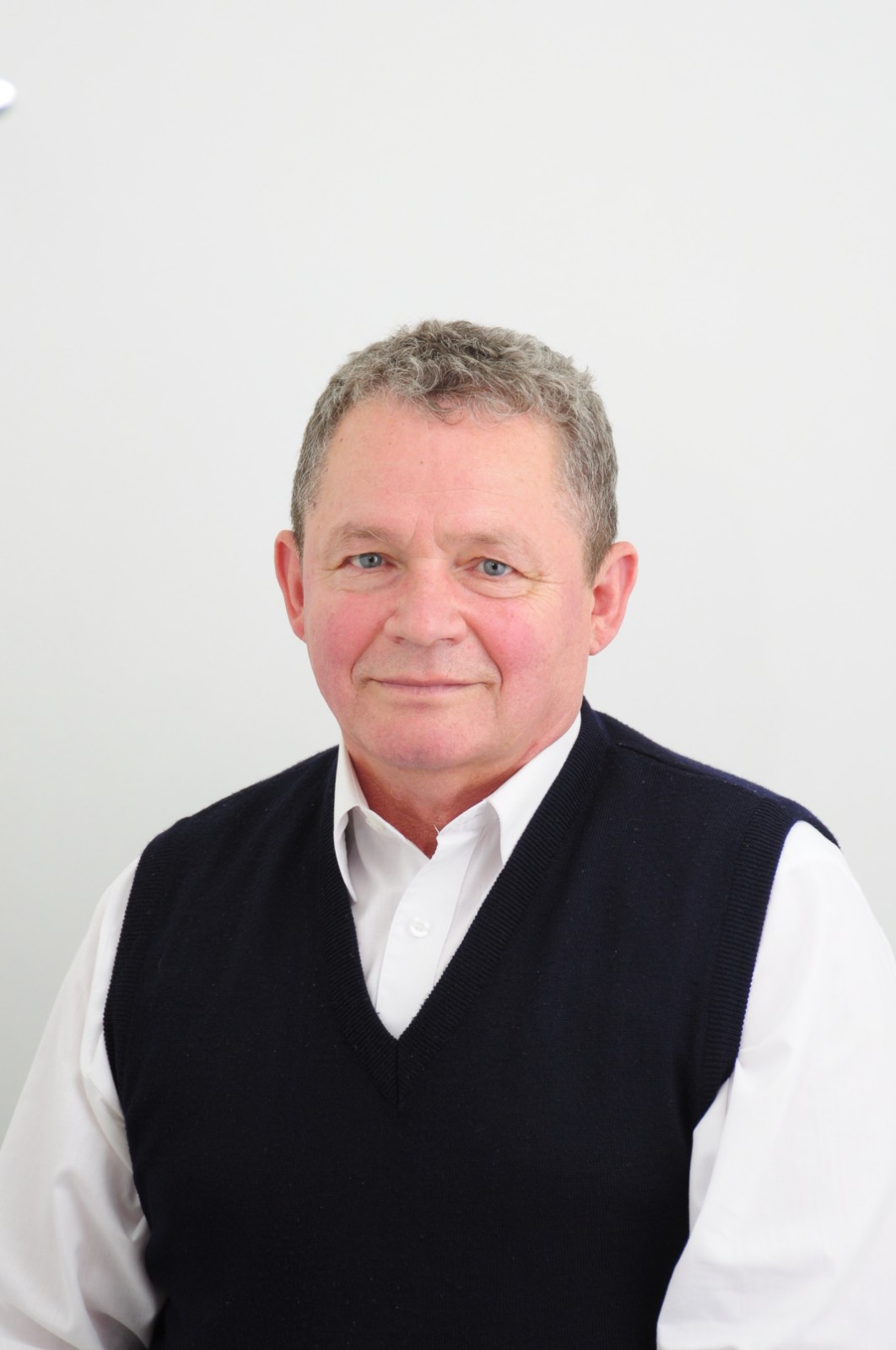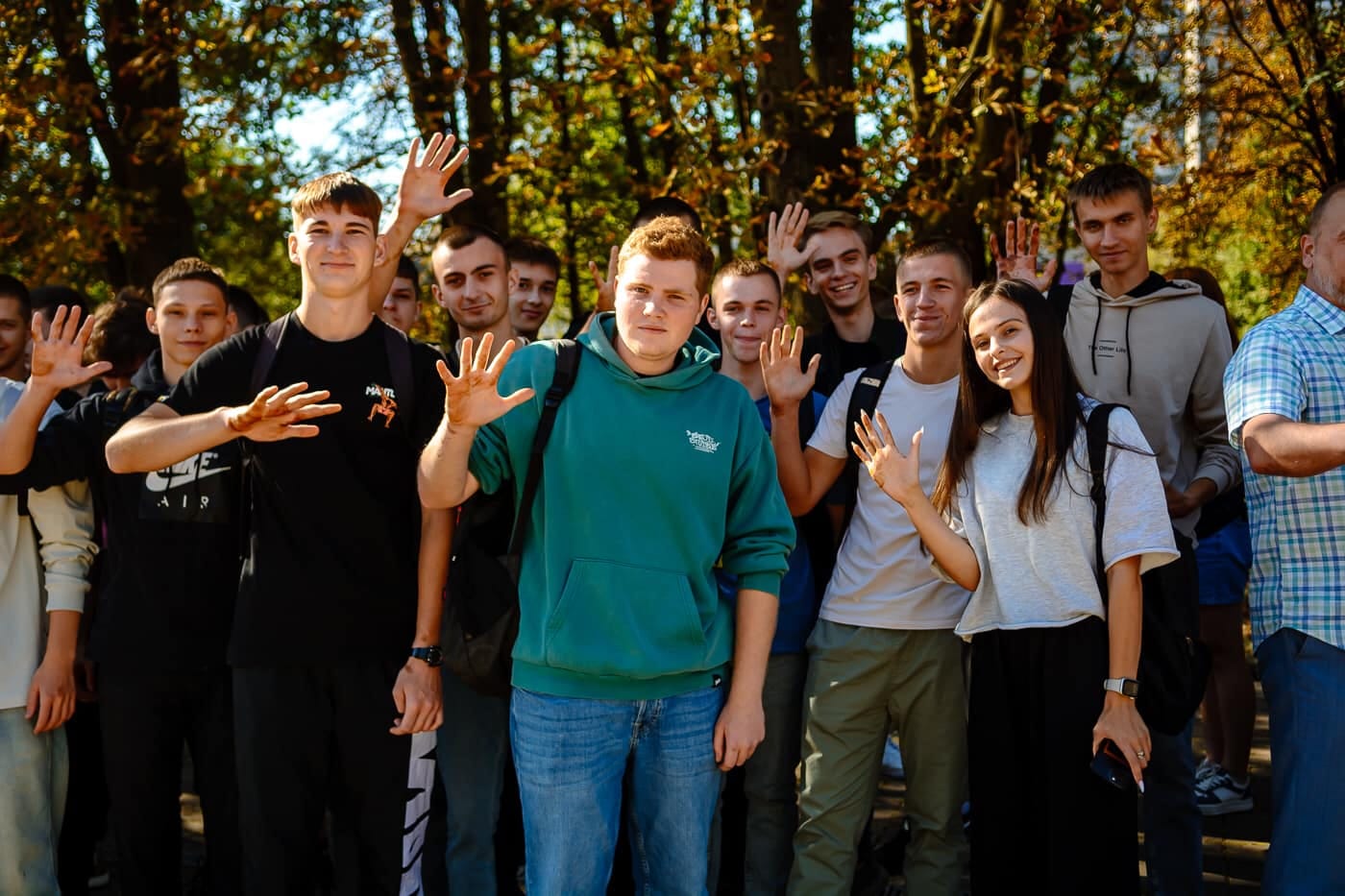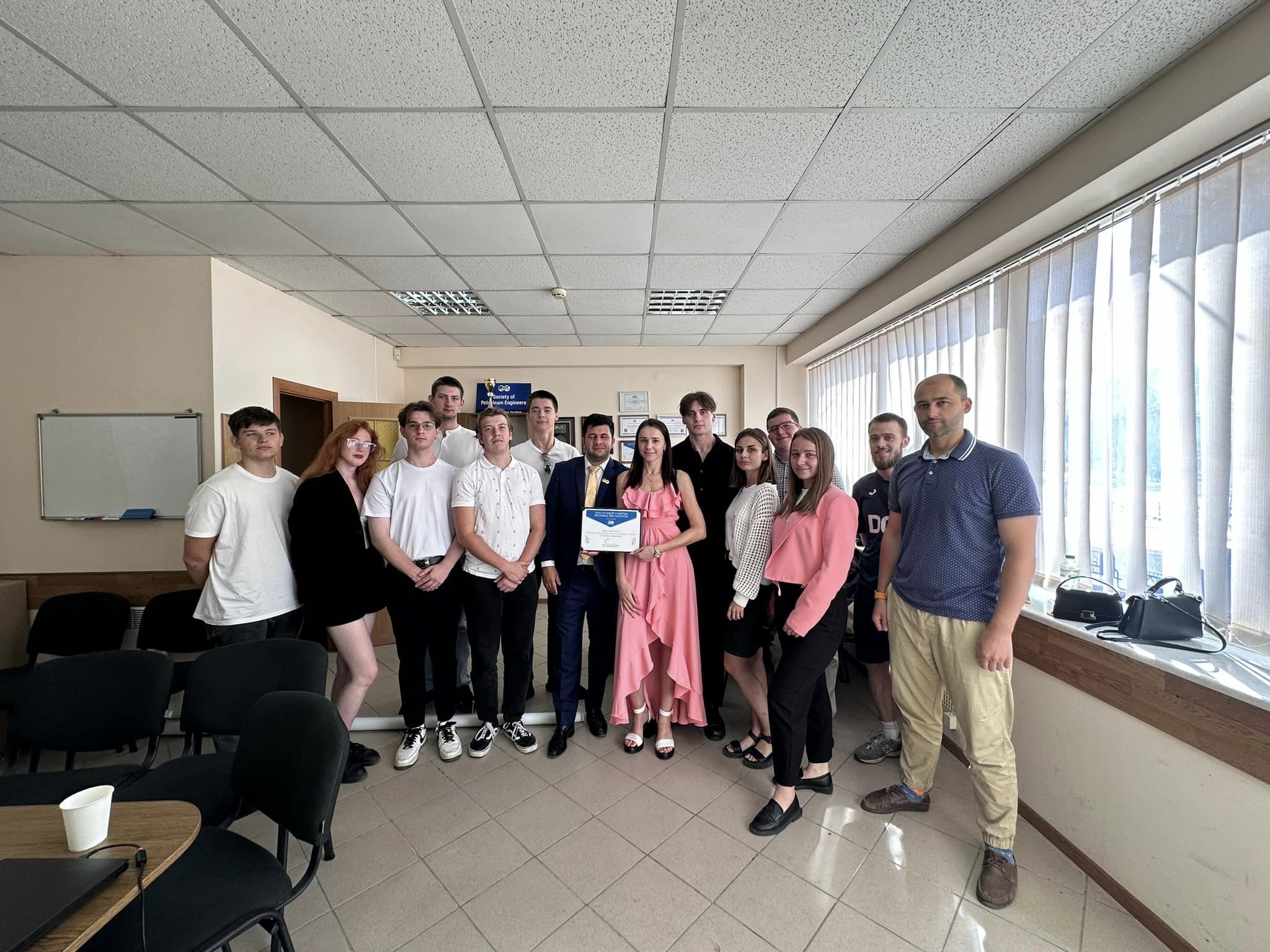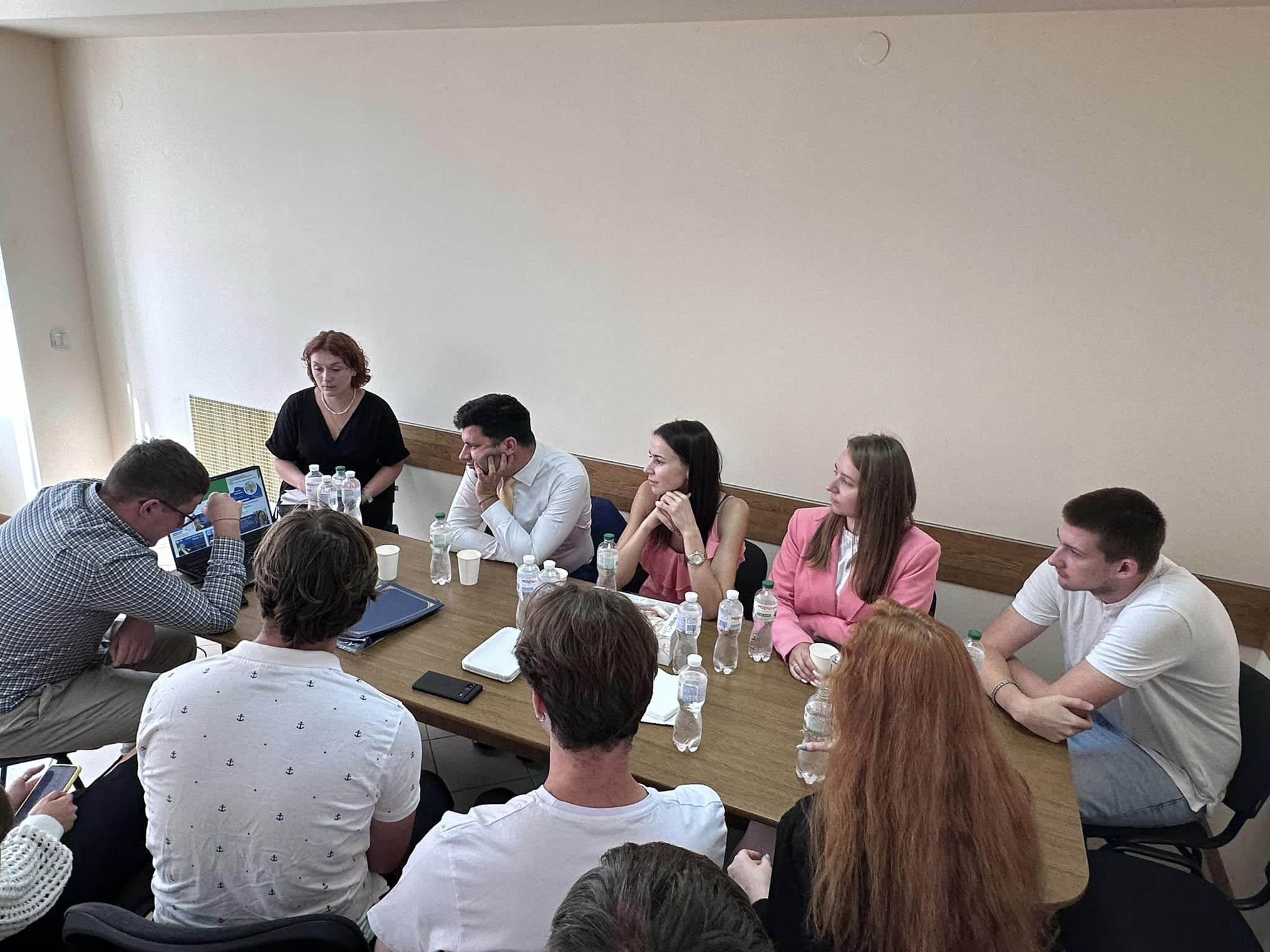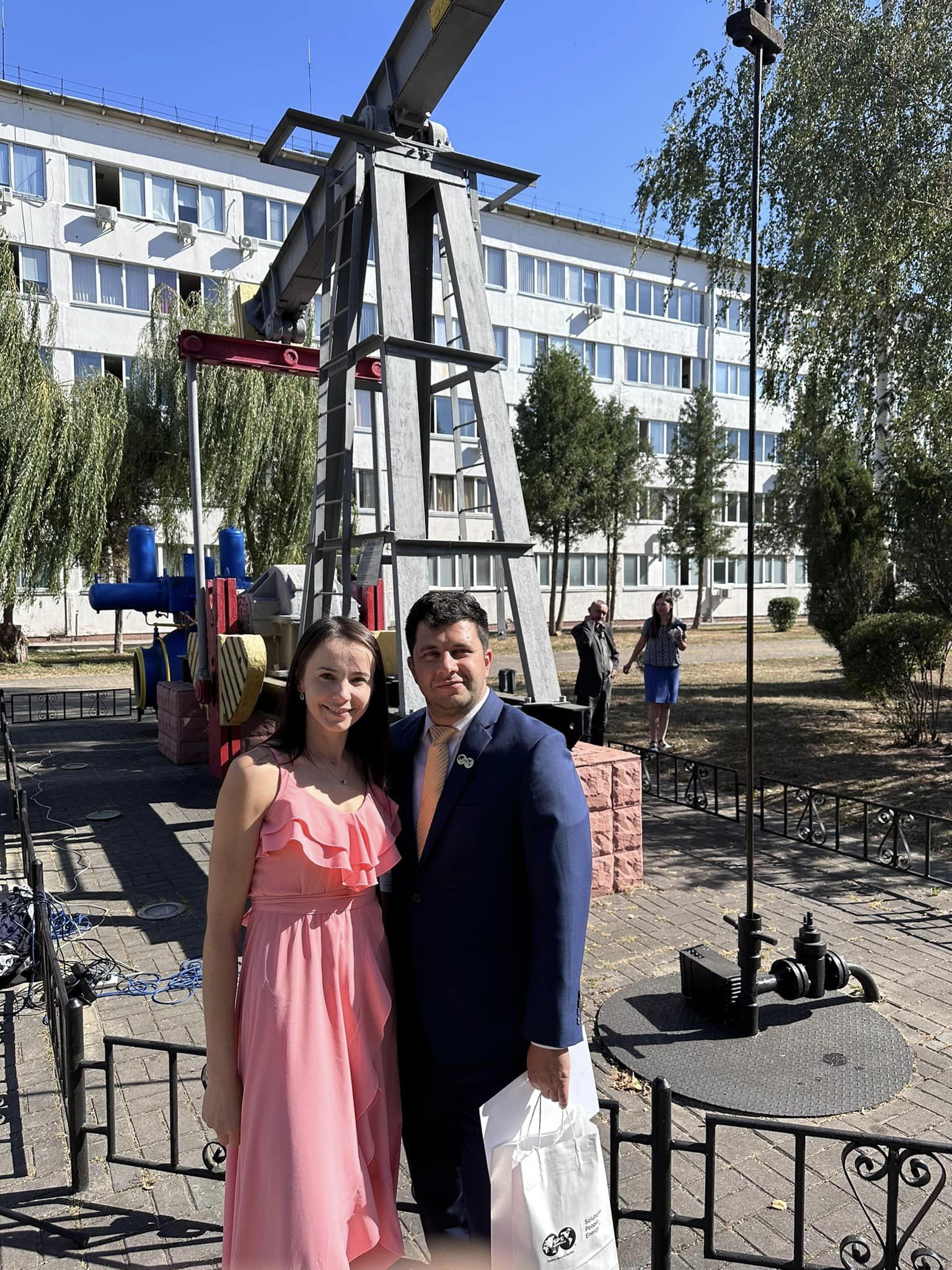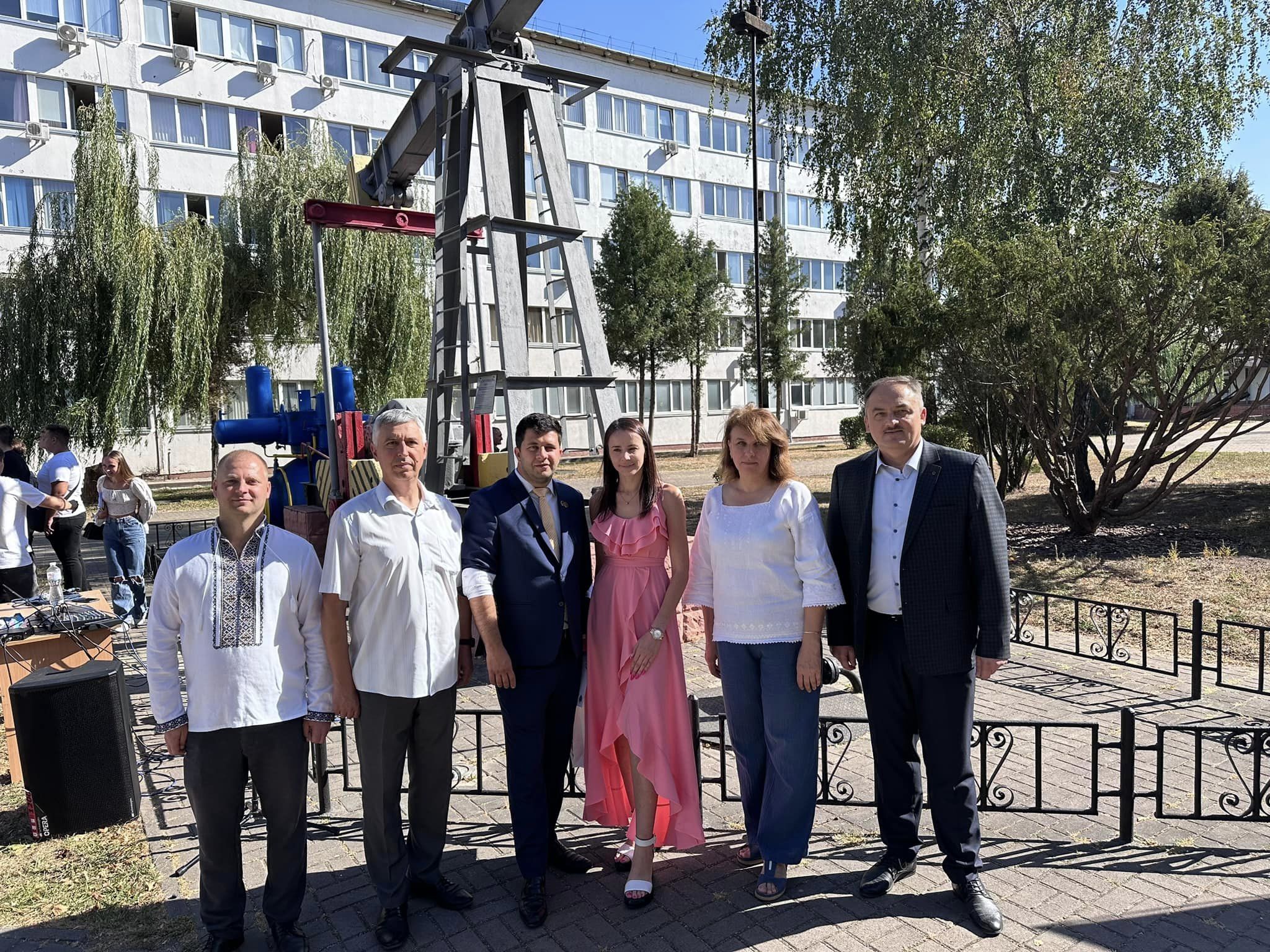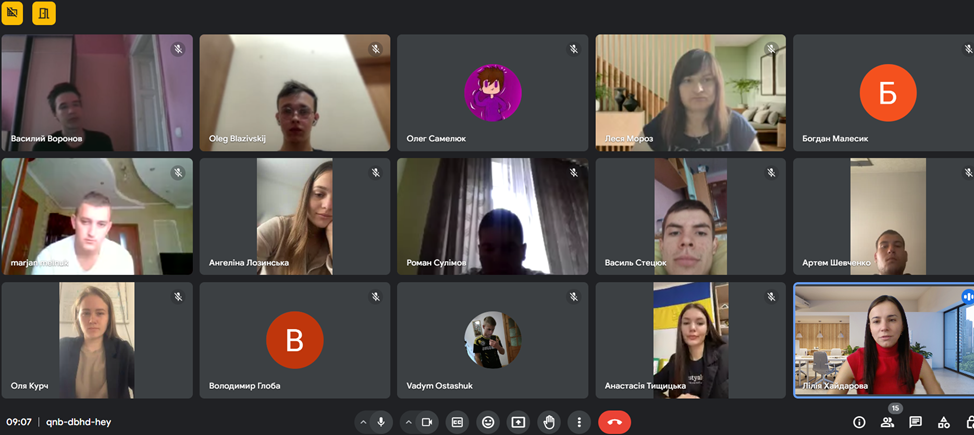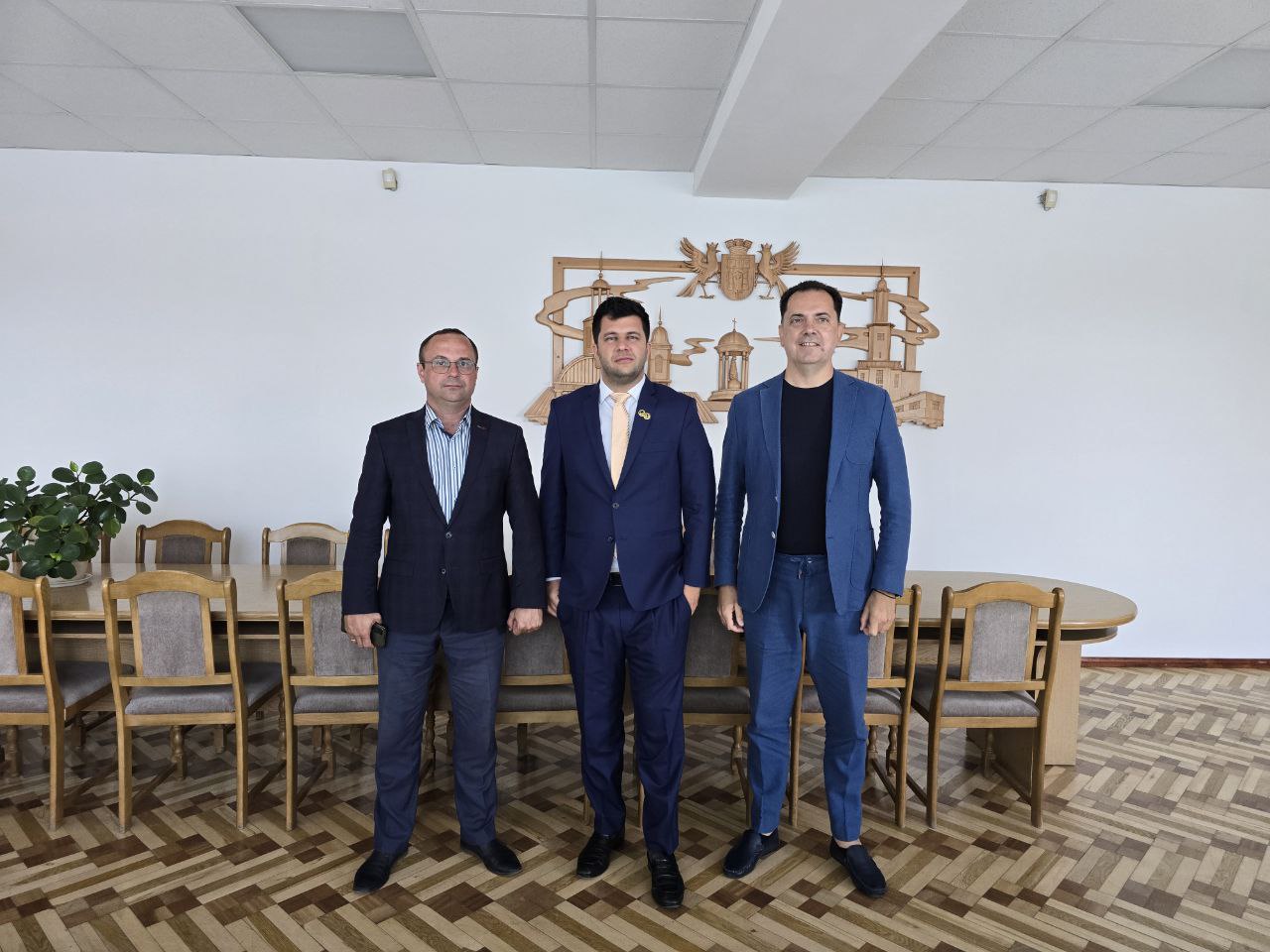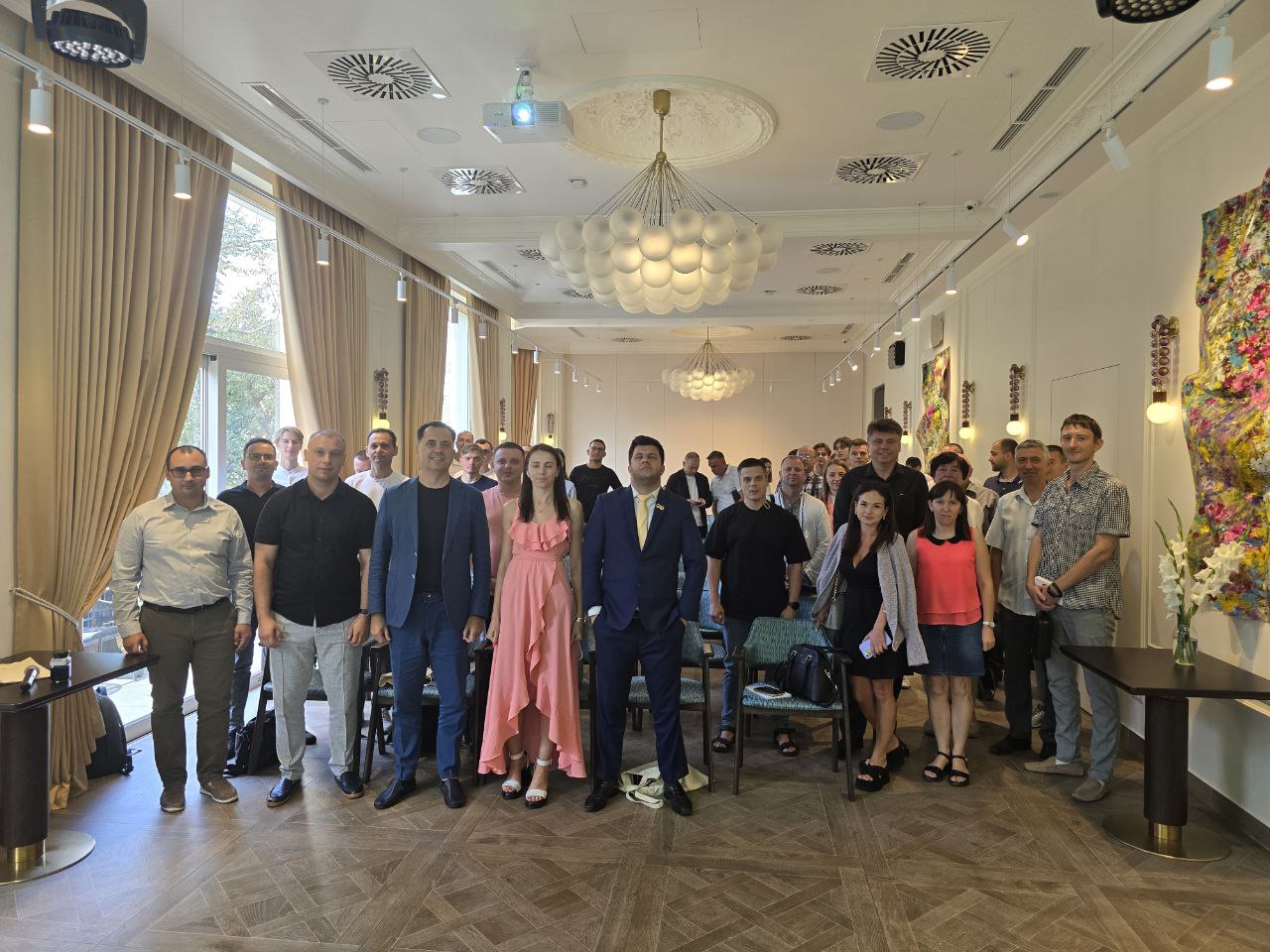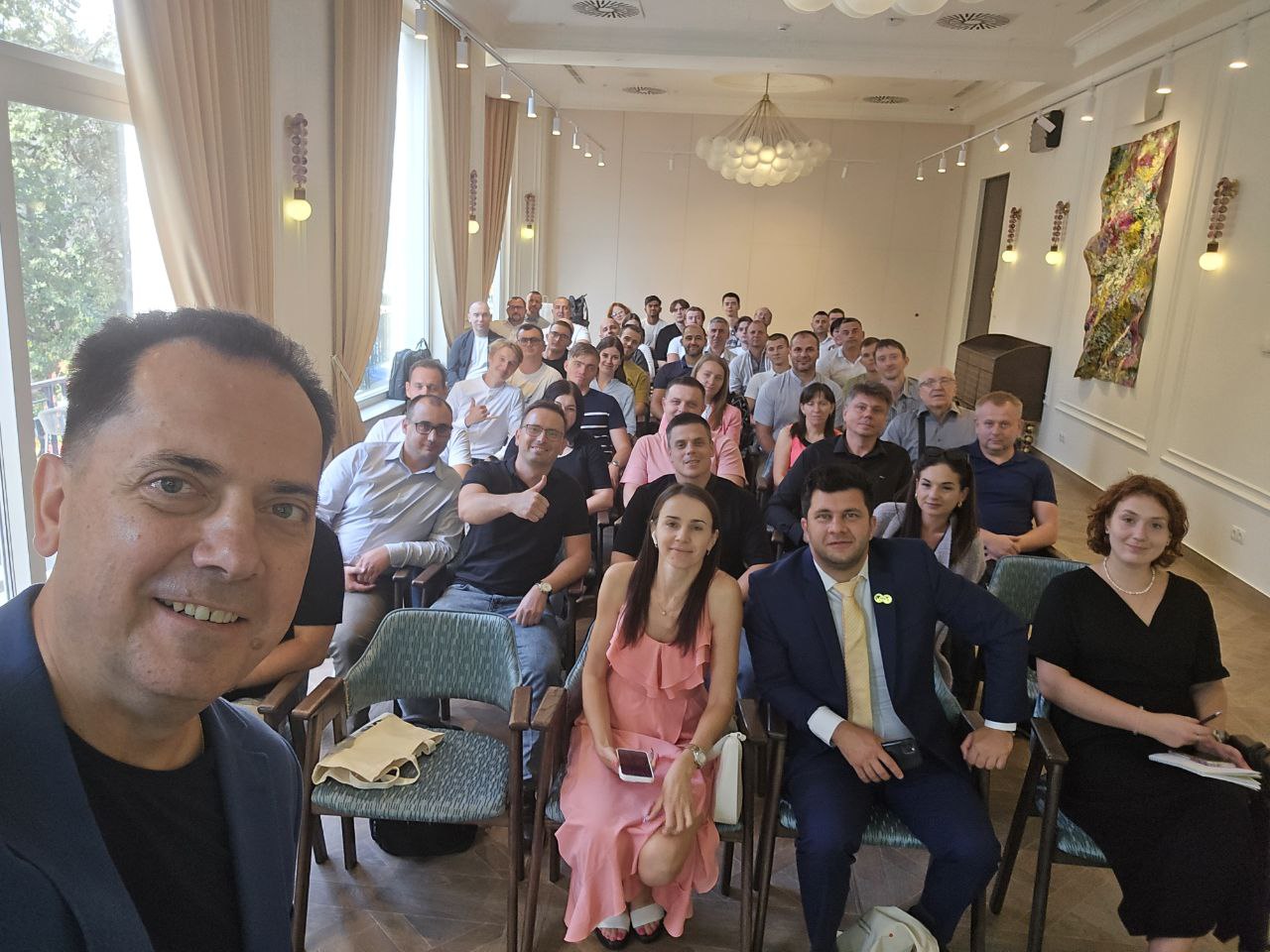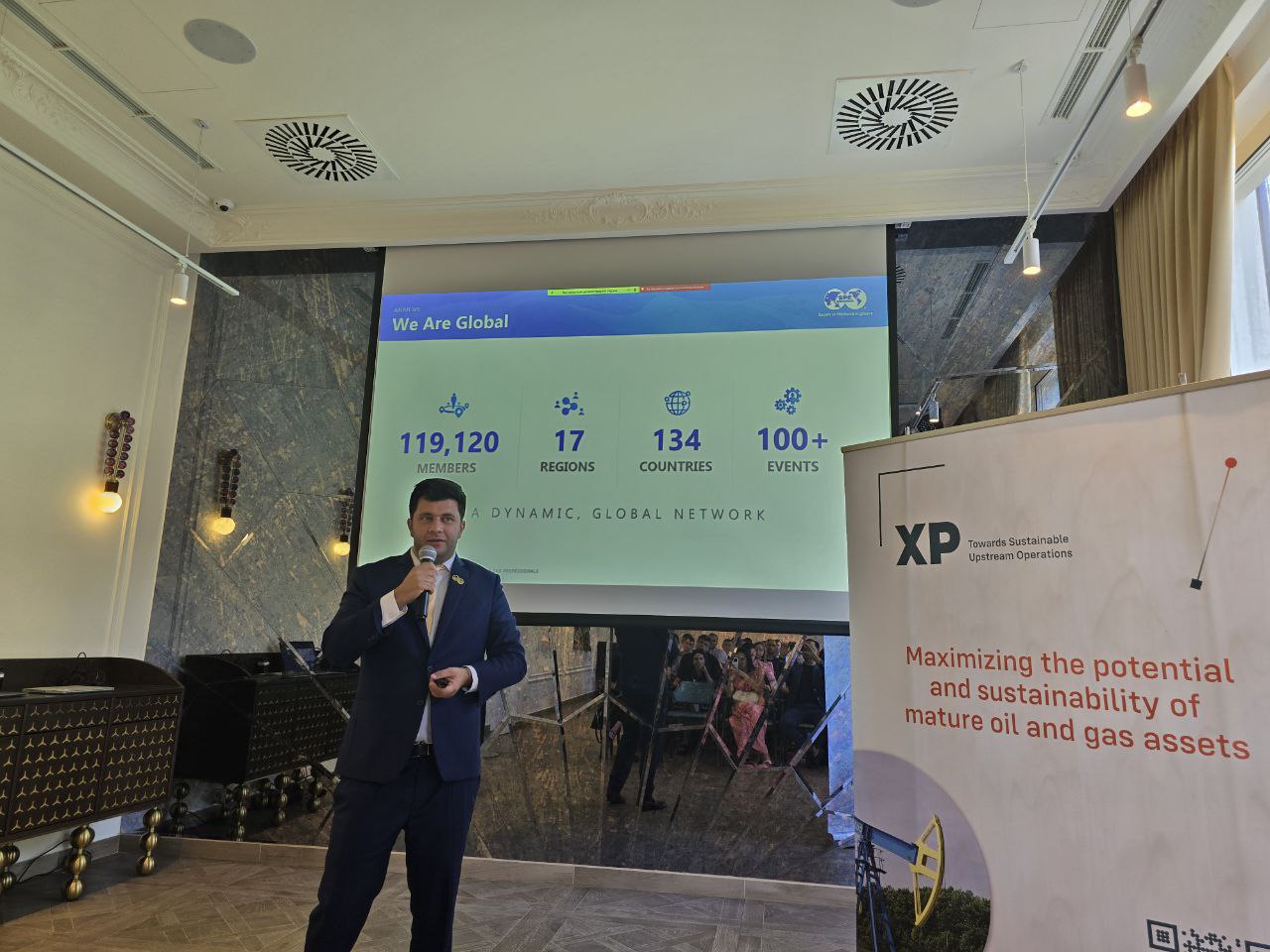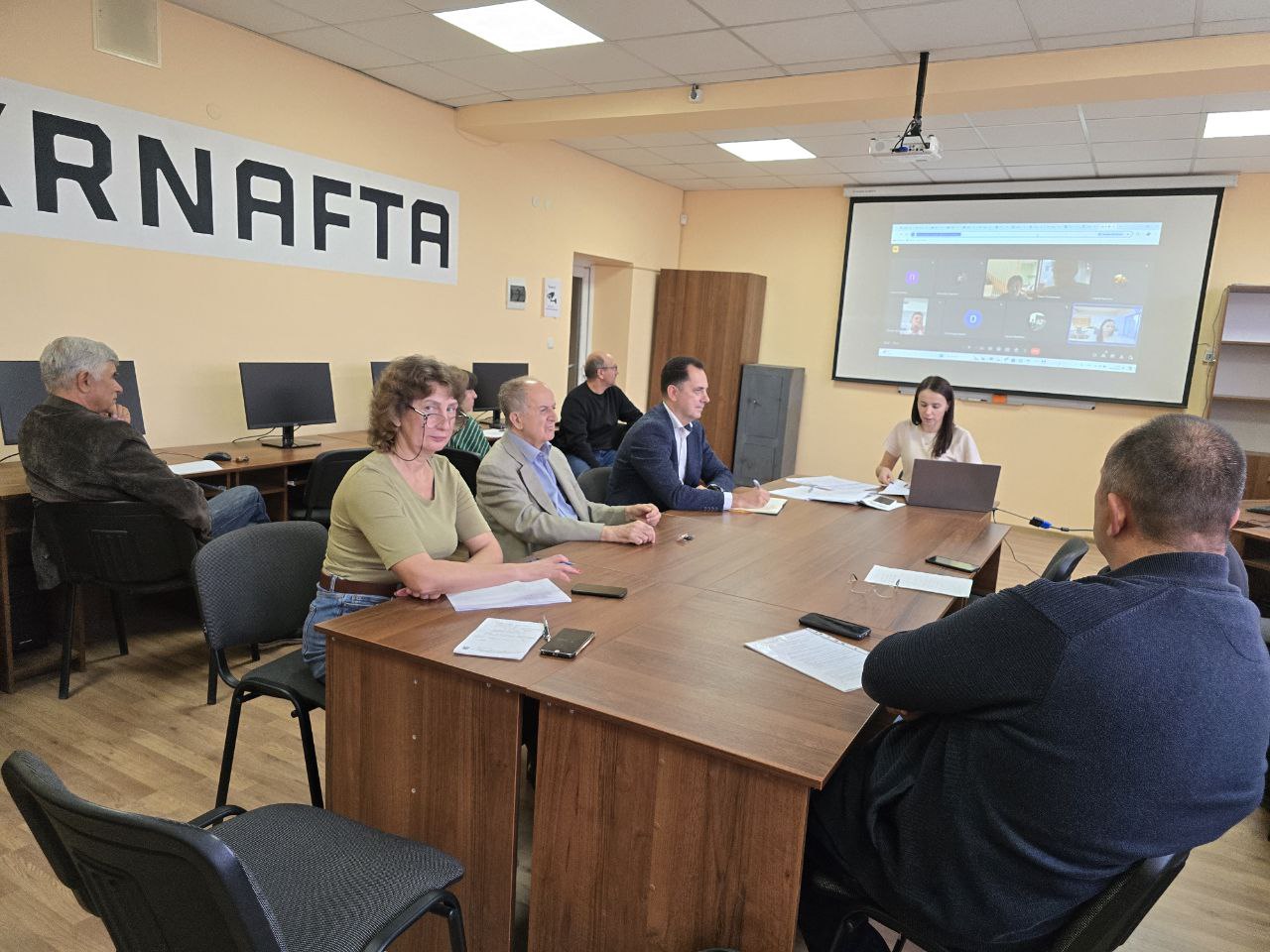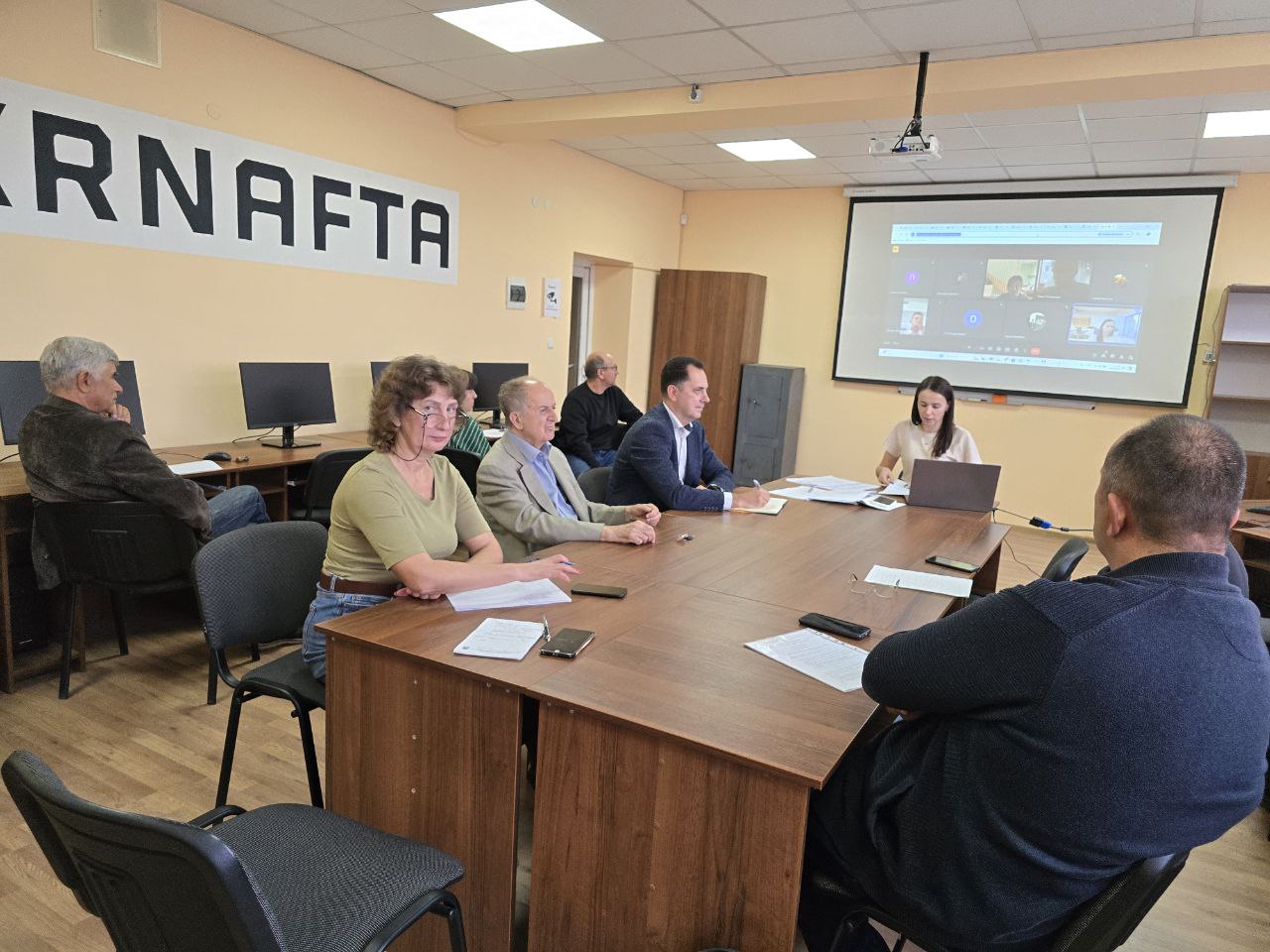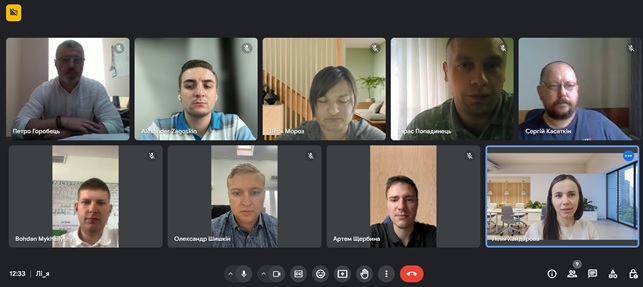Mathematics and physics have always been and remain a universal tool for scientific research and its practical implementation. That is why mathematics and physics are among the most important subjects in the curricula of higher technical education institutions. Teaching future professionals to think, navigate the world of formulas and theorems, see the commonalities in different phenomena and processes, and create their mathematical models is the main task of the teachers of the Department of Physical and Mathematical Sciences of Ivano-Frankivsk National Technical University of Oil and Gas. Together with the university, the department has gone through a glorious career path from its foundation to the present day.
It emerged as a structural subdivision of the Stanislavsky Faculty of General Engineering of Lviv Polytechnic Institute (STF LPI), organized on the basis of the order of the Council of Ministers of the Ukrainian SSR of 11.05.1960, No. 651-p. The Department of Higher Mathematics and Mechanics should be considered the predecessor of the Department (Order of the Ministry of Education and Science of the Ukrainian SSR No. 527 of 13.09.1961 "On the Organization of Departments in the Stanislavsky FTF"). Its full-time teaching staff consisted of 5 people: higher mathematics was taught by senior lecturer Stefaniia Taras, assistants Elina Korol and Kazymyr Richka; theoretical mechanics by PhD, associate professor Yevhen Shelepin, and material resistance by acting associate professor Iryna Yablochkova. The department was headed by the then Dean of the ZTF of Lviv Polytechnic Institute (later the first rector of Ivano-Frankivsk Oil and Gas Institute) Yevhen Shelepin. In January 1962, the department was replenished with senior lecturer Kh.O. Tsarehradskyi (he worked until September 1, 1962, lectured on higher mathematics), and in September 1962 with young mathematicians V.I. Gorgula, A.M. Krasnodembskyi, B.Y. Lipko (all three later became candidates of physical and mathematical sciences, associate professors and formed the core of the future department of higher mathematics) and mechanic I.D. Cherepiuk.
On August 1, 1963, on the basis of Ivano-Frankivsk FTF, the Ivano-Frankivsk branch of the Lviv Polytechnic Institute was formed with the Faculty of General Engineering and the Faculty of Oil and Gas Industry (Order of the Ministry of Education and Science of the Ukrainian SSR No. 401 of 9.07.1963). The former included the newly created Department of Higher Mathematics, which consisted of 10 people: senior lecturers S.T. Taras, V.I. Gorgula, A.M. Krasnodembskyi, B.Y. Lipko, assistants K.Y. Richka, O.R. Dovzhynska, V.M. Sapozhnikov, Z.D. Terplyvets, M.A. Shulyar, and senior preparator L.V. Hrechanyk. In 1963-64 and 1966-68, the duties of the head of the department were performed by S.T. Taras, a graduate of the LSU graduate school; a fair, demanding teacher who helped many younger colleagues with sound professional advice.
In 1964-66, the department was headed by Candidate of Physical and Mathematical Sciences, Associate Professor I.F. Hryhorchuk, an excellent lecturer and organizer who took care of the proper staffing of teaching mathematical disciplines. During this time, the staff of the department doubled, the team was joined by young teachers O.I. Polovyna, K.V. Tsidylo, M.I. Avramenko, R.D. Sysak, N.S. Droniuk, E.M. Lipko, N.E. Panchuk. In April 1966, senior lecturer Polovyna Oleksandr Ivanovych was dismissed from his job for opposing the narrowing of the functioning of the Ukrainian language in higher education, public life, and the media.
1967 is considered to be the year when the only higher educational institution of oil and gas profile in Ukraine, Ivano-Frankivsk Institute of Oil and Gas, was established (Order of the Ministry of Education and Science of the USSR No. 1 of January 1, 1967), which twenty-seven years later became first a state and then (in 2001) a national technical university of oil and gas. The university was developing, and our department was changing with it, both quantitatively and qualitatively. In the late 60s - the first half of the 70s of the last century, teachers V.O. Vorobyova, I.Y. Doskoch, B.M. Polevyi, M.V. Hlibchuk, D.D. Matieshin, I. P. Dmitrievsky, R.M. Lutsyshyn, L.O. Novikov, K.V. Gresko, N.P. Sotnikova, F.P. Kononenko, D.F. Lyalyuk, O.I. Portnoy, T.O. Fomina, senior laboratory assistant G.F. Kirilishyn. In 1968-1978, the department was headed by one of its founders, Candidate of Physical Sciences, Associate Professor B.Y. Lipko, whose lectures were a model of pedagogical excellence for his colleagues. The range of his scientific interests was quite wide: differential equations, mathematical physics, probability theory. Borys Yakovlevych could provide comprehensive consultations on the most complex issues in these and many other mathematical disciplines.
In the second half of the 70s and 80s, the number of the department increased to 23-26 people. Both young and experienced teachers came. Some already had a degree, while others were preparing their research papers while working at the department. At this time, the staff was joined by A.N. Khomchenko, S.I. Gurgula, L.I. Kamaieva, M.O. Chernov, T.G. Lavinyukova, V.M. Senychak, L.D. Melnychenko, L.O. Dozhdzhaniuk, S.V. Volkovetskyi, V.P. Nisonskyi, D.A. Skrypnyk, B.S. Sikora, M.V. Ivaniuk, Y.I. Savchuk, and others. Some of them are still working today. Now they are veterans of the department who perfectly know the secrets of professional skill.
Associate Professor A.N. Khomchenko became the first doctor of science at the department, having defended his dissertation "Development and Application of Probabilistic Modeling in Discrete Methods of Computational Mechanics" in 1991. He is now a professor and head of the Department of Applied Mathematics and Mathematical Modeling at Kherson National Technical University. Under his guidance, our colleagues L.I. Kamaieva and V.M. Senychak defended their PhD theses.
For more than a quarter of a century (from 1978 to 2004), Candidate of Physical Sciences, Associate Professor V.I. Gorgula worked as the head of the department. His authority as a scientist, teacher, and organizer was indisputable not only among students and teachers, but also among the university administration. Vasyl Ivanovych did a lot for the development of the department, skillfully selecting staff and taking care of raising their scientific level (6 teachers were sent to the targeted postgraduate program).
The 90s were fruitful for the team, the period of the formation of independent Ukraine. The staff of the department did not stand aside from those state-building events. Many of them (S.V. Volkovetskyi, I.Y. Doskoch, D.F. Lialiuk, V.M. Moisyshyn, Y.I. Savchuk, R.D. Sysak) became active members of the Ukrainian Language Society, the People's Movement, and the Democratic Party of Ukraine (chaired by Y. Badz and V. Yavorivskyi). Associate Professor S. Volkovetskyi was twice elected to the Verkhovna Rada of Ukraine (1990, 1994), headed the Ivano-Frankivsk Regional State Administration, and served as Ambassador Extraordinary and Plenipotentiary of Ukraine to Georgia and Azerbaijan.
The Institute of Oil and Gas acquired a new status as a state technical university. The department was joined by talented young scientists, including I.M. Gural, L.M. Ivasyshyn, L.A. Moiseenko, V.M. Moisyshyn, O.R. Nikiforchyn, M.M. Osipchuk, L.R. Smolovyk and others. All of them were PhDs at the time or became so in the first years of their work at the department. In 1996, Associate Professor V.M. Moisyshyn received his doctorate in engineering with a dissertation on the study of drill string stability and oscillations during rotary drilling.
The depoliticization of the educational process associated with the collapse of the USSR made it possible to switch completely to teaching in Ukrainian. In the early 1990s, the department began a major effort, which continues to this day, to create textbooks in the state language. Today, almost all lecture courses are provided with educational and methodological literature. It is worth noting the significant contribution of Associate Professor B.S. Sikora, who is the inspiration and co-author of many textbooks.
An important milestone in the history of the university was reached in 2001, when the President of Ukraine granted the university the status of National Technical University of Oil and Gas. There were changes in the structure of the university, a number of new subdivisions-institutes were created. At the same time, the Department of Higher Mathematics became part of the Institute of Fundamental Training (IFT) (it is interesting to trace the subordination of the department to the faculties during its existence: the Faculty of General Engineering in 1961-1969, the Faculty of Automation and Economics in 1970-1985, Faculty of Oil and Gas Engineering 1985-2001, Institute of Fundamental Training 2001-2011, Institute of Fundamental and Humanitarian Training and Distance Learning 2011-2014, Institute of Information Technology 2014-2018, Institute of Oil and Gas Engineering from 2018 to the present).
From 2004 to 2023, the Department of Higher Mathematics was headed by Doctor of Technical Sciences, Professor V.M. Moisyshyn. During this time, the departmental ranks have undergone a significant renewal, but the labor traditions of the team remain unchanged: impeccable discipline, high professionalism, and mutual assistance. Along with them, new ones are being created: the development of mathematical special courses, tourist trips to the native land.
Since 1961, an experienced, highly qualified faculty has been involved in teaching mathematical disciplines at our university. Below is a chronological list of the department's faculty members who have worked in full-time positions at different times (years of service in parentheses) and taught mathematical disciplines:
Taras Stefania Tomivna, Senior Lecturer, Acting Head of the Department (September 1, 1961 - April 18, 1985);
Korol Elina Mykolaivna, assistant (September 1, 1961 - September 3, 1962);
Rivera Kazymyr Yosypovych, assistant (September 1, 1961 - March 8, 1965);
Khrystian Tsarehradskyi, Senior Lecturer (January 1, 1962 - September 10, 1962);
Gorgula Vasyl Ivanovych, Candidate of Physical and Mathematical Sciences, Professor, Head of the Department (September 1, 1962 - September 1, 2007);
Lipko Borys Yakovych, Candidate of Physical and Mathematical Sciences, Associate Professor, Head of the Department (September 1, 1962 - January 30, 1995);
Adam Mykhailovych Krasnodembskyi, Candidate of Physical and Mathematical Sciences, Associate Professor (September 1, 1962 - January 1, 2017);
- an old-timer of the department who has worked there for almost 55 years. Dovzhynska Oksana Romanivna, Assistant (September 1, 1963 - September 25, 1967);
Sapozhnikov Vadym Mykolaiovych, assistant (September 1, 1963 - August 11, 1964);
Shvedova (Terplivets) Zoya Dmytrivna, Senior Lecturer (September 1, 1963 - July 10, 1996);
Shulyar Mykhailo Antonovych, assistant (September 5, 1963 - September 1, 1967);
Hryhorchuk Ivan Fedorovych, Candidate of Physical and Mathematical Sciences, Associate Professor, Head of the Department (26.08.1964 - 7.09.1966); (he recently celebrated his 90th birthday, born on February 17, 1927)
Tsidylo Kostiantyn Vasylovych, Candidate of Physical and Mathematical Sciences, Associate Professor (September 1, 1964 - October 30, 1968 and December 10, 1976 - June 19, 1980);
Polovyna Oleksandr Ivanovych, Senior Lecturer (September 25, 1965 - April 2, 1966);
Avramenko Mykola Ivanovych, assistant (September 14, 1964 - July 1, 1966);
Panchuk Nina Yevstakhiivna, assistant (August 4, 1965 - October 12, 1986);
Sysak Roman Dmytrovych, Candidate of Technical Sciences, Associate Professor (August 16, 1965 - December 7, 2006);
Droniuk Nadiia Sylvestrivna, Senior Lecturer (September 1, 1965 - September 8, 1972);
Lipko Yevheniia Moiseiivna, assistant (April 21, 1966 - December 15, 1990);
Hrechanyk Liubov Vasylivna, assistant (April 24, 1966 - April 3, 1995, teaching and support staff from October 5, 1963 - April 24, 1966);
Valentyna Vorobiova, assistant (September 1, 1966 - August 31, 2008);
Bohdan Mykolaiovych Polevyi, Candidate of Physical and Mathematical Sciences, Associate Professor (January 28, 1967 - July 14, 1967 and February 1, 1994 - November 10, 2001);
Hlibchuk Myroslav Vasylovych, Assistant (August 23, 1967 - May 10, 1996);
Matieshin Dmytro Dmytrovych, Senior Lecturer (28.10.1968-02.03.2015)
Lutsyshyn Rostyslav Mykhailovych, Candidate of Physical and Mathematical Sciences, Senior Lecturer (January 30, 1969 - August 05, 1969);
Dmytriievskyi Ivan Petrovych, Candidate of Physical and Mathematical Sciences, Associate Professor (January 25, 1969 - July 1, 1974);
Novikov Leonid O., Candidate of Physical and Mathematical Sciences, Associate Professor (April 1, 1969 - July 7, 1974);
Sotnikova Nina Petrivna, Assistant (September 20, 1969 - September 19, 1978);
Kateryna Hresko, assistant (1969-30.08.2014);
Kononenko Fedir Pavlovych, Assistant (October 15, 1971 - December 31, 1975);
D. in Physics and Mathematics, Associate Professor (1972-30.08.2014);
Portnoy Oleksandr Izrailovych, Assistant (September 1, 1974 - June 1, 1975 and June 26, 1976 - December 3, 1990);
Fomina Tamara Oleksiivna, assistant (September 1, 1974 - April 18, 1989);
Khomchenko Anatolii Nikiforovych, Doctor of Physical and Mathematical Sciences, Professor (27.08.1975 - 7.07.1992);
Burlakova Alla Petrivna, Assistant (September 4, 1974 - March 1, 1978);
Lavyniukova Tetiana Hryhorivna, Senior Lecturer (at the University since September 10, 1972, at the Department from September 14, 1976 to June 30, 2013);
Kamaieva Lidiya Ivanivna, Associate Professor, Candidate of Technical Sciences (September 01, 1976-31.03.2015);
Chernov Mykola Oleksandrovych, Assistant (September 8, 1976 - March 16, 1996);
Melnychenko Lidiya Dmytrivna, Assistant (1978-31.03.2015);
Dozhdzhaniuk Liubov Oleksiivna, Assistant (22.11.1978 - 30.05.1989);
Volkovetskyi Stepan V., Candidate of Technical Sciences, Professor (December 1, 1979 - October 8, 1991, April 11, 1994 - May 9, 1998);
Nisonskyi Volodymyr Pavlovych, Assistant (1980-1981, 2001-30.08.2014);
Skrypnyk Dmytro Antonovych, Candidate of Pedagogical Sciences, Associate Professor (June 30, 1981 - August 31, 2001);
Sikora Bohdan Stepanovych, PhD in Physics and Mathematics, Associate Professor (December 30, 1981 - September 1, 2009);
Ivaniuk Mykola V., Candidate of Physical and Mathematical Sciences, Associate Professor (February 11, 1983 - November 27, 1985 and December 26, 1988 - March 1, 2000);
Kucheruk Liudmyla Vasylivna, Senior Lecturer (August 29, 1983 - May 12, 1987);
Kedyk Taras V., Candidate of Physical and Mathematical Sciences, Assistant (September 2, 1985 - October 14, 1988 and December 26, 1991 - June 2, 1994);
Mykhailyshyn Yaroslav Ivanovych, Candidate of Physical and Mathematical Sciences, Assistant (December 2, 1985 - September 8, 1988);
Roman Chyhur, Assistant (December 15, 1990 - September 1, 1993);
Malyk Mykhailo Yosypovych, Assistant (January 9, 1992 - January 16, 1995);
Gerashchenko Nataliia Volodymyrivna, Assistant (September 21, 1992 - October 1, 1993);
Osypchuk Mykhailo Mykhailovych, Candidate of Physical and Mathematical Sciences, Associate Professor (October 11, 1993 - January 31, 2008);
Vasyl Beley, Assistant (September 1, 1994 - January 16, 1995);
Skrypnychuk Halyna Ivanivna, Assistant (August 7, 1995 - February 2, 1996);
Oleh Rostyslavovych Nikiforchyn, Candidate of Physical and Mathematical Sciences, Associate Professor (September 18, 1995 - August 31, 1997);
Hevka Olga Andriivna, Assistant (September 19, 1995 - June 30, 2011);
Ivasyshyn Liliia Mykhailivna, Candidate of Physical and Mathematical Sciences, Associate Professor (September 1, 2001 - August 30, 2004);
D. in Physics and Mathematics, Assistant Professor (September 1, 2003 - September 1, 2004);
Bachuk Vasyl, Assistant (October 1, 2003 - December 1, 2010);
Yatsyshyn Vasyl Dmytrovych, Candidate of Technical Sciences, Associate Professor (October 1, 2003 - September 7, 2011);
Hryhorchuk Halyna Vasylivna, Assistant (2003-2004, 2009-30.08.2014, 01.09.2023 - present);
Gulka Stepan Stepanovych, PhD in Physics and Mathematics, Associate Professor (September 1, 2007 - February 28, 2011);
Chumachenko Yaroslav Vitaliiovych, PhD in Engineering, Associate Professor (September 1, 2012 - August 30, 2014);
Semenchuk Andrii Vasyliovych, PhD in Physics and Mathematics, Assistant Professor (September 1, 2012 - August 30, 2014);
Gurgula Stepan Ivanovych, Candidate of Physical and Mathematical Sciences, Associate Professor (September 01, 1974-26.03.2016);
Kulinich Halyna Mykhailivna, Assistant (01.10.2010-30.08.2019)
Senychak Vasyl Mykhailovych, Candidate of Technical Sciences, Associate Professor (09/01/1978-31/12/2020)
Rys Vitalii V., Assistant (01.09.2001-30.08.2021)
Hryhorchuk Liubomyr Ivanovych, Candidate of Pedagogical Sciences, Associate Professor (at the University since 1990, at the Department from September 01, 1999 to August 30, 2022)
Ovchar Ihor Yevheniiovych, Candidate of Physical and Mathematical Sciences, Associate Professor (May 01, 2005 - August 30, 2022).
The teaching and auxiliary staff of the department included:
Halyna Feofanivna Kyrylyshyn, Senior Laboratory Assistant (at the University since September 1, 1964, at the Department from September 1, 1966 to January 15, 2014);
Valentyna Ivanivna Vasylyshyn, Senior Engineer (August 13, 1978 - March 19, 2004);
Zinchenko Volodymyr Oleksandrovych, Engineer of the 1st category (September 6, 2002 - March 19, 2004);
Demkiv Bohdan Vasylovych, leading engineer (March 22, 2004 - June 22, 2011);
Dyakiv Lyubomyra Yaroslavivna, Leading Engineer (September 01, 2006 - January 08, 2019),
Anshyts Tetiana Ihorivna (01.09.2011-08.03.2024).
Of the faculty members of the department who have worked in full-time positions since its opening to the present day, 28 have passed away forever. These are Kh.O. Tsarehradskyi (1897-19??), E.G. Shelepin (1906-1078), O.R. Dovzhynska (1931-2009), N.E. Panchuk (1931-1986), O.I. Portnoy (1932-2003), F.P. Kononenko (1933-1982), Ye. Lipko (1933-1999), B.Y. Lipko (1935-1998), D.A. Skrypnyk (1934-2004), M.A. Shulyar (1935-199?), L.O. Dozhdzhaniuk (1936-1989), M.I. Avramenko, T.O. Fomina (1937-1991), V.M. Sapozhnikov (1938-1964), K. V. Tsidylo (1938-1980), M.O. Chernov (1939-1996), M.V. Hlibchuk (1939-1996), R.D. Sysak (1940-2006), B.M. Polevyi (1943-2001), S.S. Hulka (1952-2011), V.D. Yatsyshyn (1956-2011), T. V. Kedyk (1958-1994), B. S. Sikora (1932-2013), S. Taras (1930-2013), S. Gurgula (1951-2016), V. Gurgula (1937-2016), D. Laliuk (1939-2018), and V. Vorobiova (13.06.2023). Our team keeps them in good memory. Also, laboratory assistant Hanna Kyrylyshyn (1939-2018) and leading engineer Liliia Dyakiv (1972-2019), who performed a considerable amount of work invisible to the naked eye, passed away.
We also remember those of our teachers who, for various reasons, changed their jobs or took a well-deserved rest. We would like to think that the years spent at the department were the best years of their lives.
In recent years, the staff of the department has sharply decreased in number due to the arbitrariness of graduate departments in the distribution of hours for mathematical disciplines and the non-interference of the Ministry of Education in the preparation of curricula. In particular, in 2011, the department had 31 full-time employees, 17 of the 29 teachers had academic degrees, three of them were doctors of science. Instead, in October 2018, the department had 19 full-time employees, 14 out of 17 teachers had academic degrees, two of them were doctors of science. The latest trend of graduate departments is that "no one needs mathematics and physics except for mathematicians and physicists themselves."
In September 2005, Associate Professor L.A. Moiseenko successfully defended her dissertation "Psychology of Students' Creative Mathematical Thinking" for the degree of Doctor of Psychology. The process of generational change continues, and young scientists are growing professionally. Veterans of the department I. Doskoch, V. Vorobiova, and T. Laviniukova retired. Charismatic, colorful lecturers who defined the face of the department R.D. Sysak, S.S. Gulka, V.I. Gorgula and S.I. Gurgula passed away. Talented mathematicians O.R. Nikiforchyn and M.M. Osypchuk are the heads of the departments at the Precarpathian National University. L.M. Melnychuk (Ivasyshyn), PhD in Physics and Mathematics, moved to Chernivtsi for permanent residence and works as an associate professor of differential equations at the local university.
Since September 2014, in connection with the creation of the Department of Mathematical Methods in Engineering, five employees of the Department of Higher Mathematics have moved to work at the new department: Assoc. Prof. Hryhorchuk L. I. (who returned to the department in March 2015), Assoc. Semenchuk A. V., assoc. Nisonskyi V. P., assoc. Hryhorchuk H. V. Subsequently, in 2023, Associate Prof. Semenchuk A. V. and Associate Prof. Hryhorchuk H. V. returned to the department as a result of the merger of part of the Department of Applied Programming and Computing with the new Department of Physical and Mathematical Sciences.
Today we face new challenges. Together with the entire university staff, the department is working on updating the work programs, creating new special courses, textbooks and manuals in order to enter the European educational space.
Mathematics, physics, and special physical and mathematical courses are taught in 3 departmental lecture halls and 10 teaching laboratories in mechanics, molecular physics, electricity and magnetism, optics, and atomic physics.
Teachers of the department widely use the latest technologies for conducting classes in accordance with the credit-module system of organizing training and the rating system for monitoring and evaluating students' knowledge. The technology of distance learning for students of the Drohobych counseling center was also introduced on the basis of a 6-module electronic textbook on the course of physics, published by the staff of the department under the editorship of Professor M. Galushchak.
During 2010-2014, the teachers of the department (Professor Galushchak M. O. and Associate Professor Luchytskyi R. M.) represented the university at the International Exhibitions on the problems of educational development, for which they were awarded with diplomas and diplomas of the Ministry of Education and Science of Ukraine, and the university - with 5 Gold medals. At one time, the staff of the Department of General and Applied Physics cooperated on the basis of agreements on scientific, technical and educational cooperation with scientific laboratories of the Institute of Physics of the National Academy of Sciences of Ukraine, the Institute of Semiconductor Physics of the National Academy of Sciences of Ukraine, the departments of physics of Vasyl Stefanyk Precarpathian National University, Ivan Franko National University of Lviv, Sumy State University, Yuriy Fedkovych Chernivtsi National University, the Institute of Pedagogical Education and Adult Education of the National Academy of Pedagogical Sciences in Ukraine.
